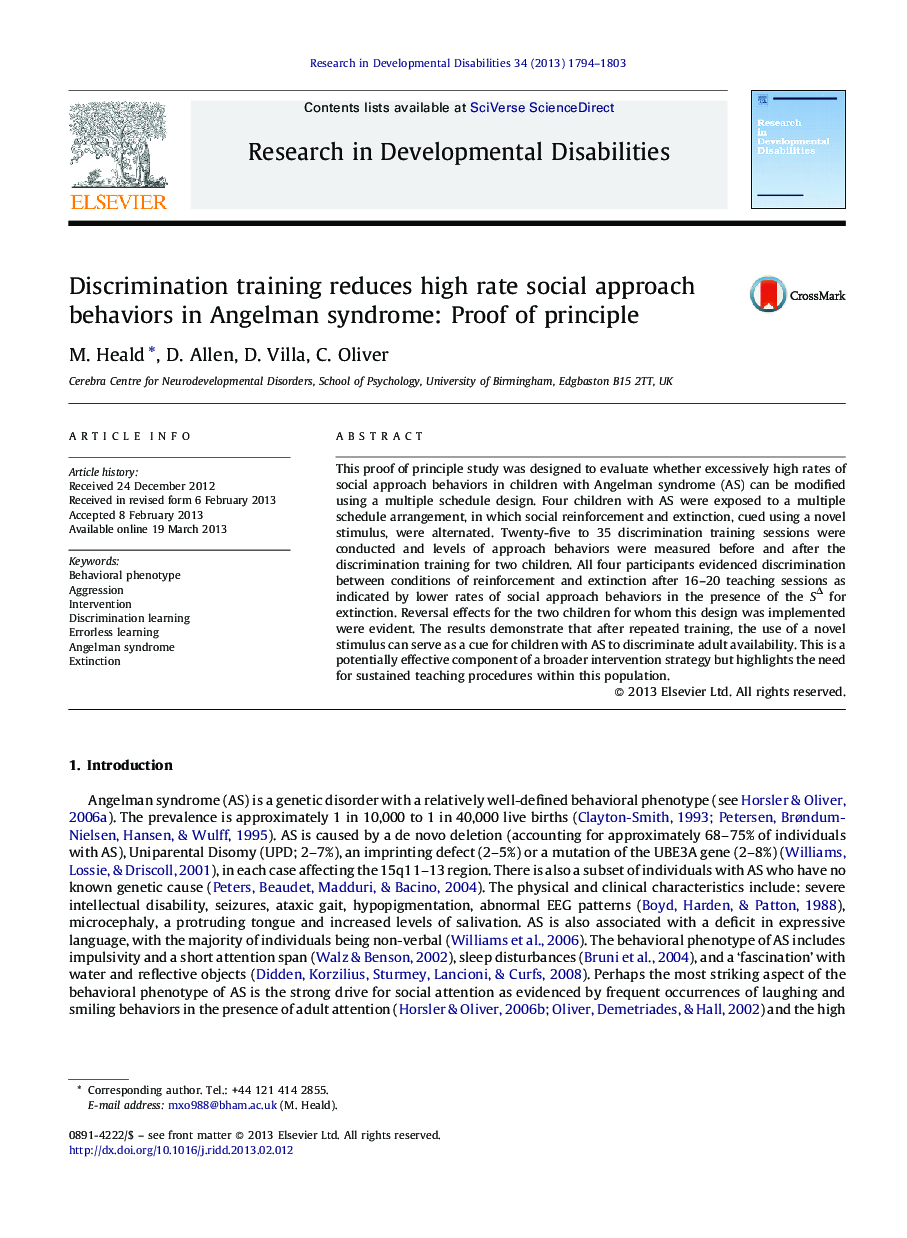| کد مقاله | کد نشریه | سال انتشار | مقاله انگلیسی | نسخه تمام متن |
|---|---|---|---|---|
| 371487 | 621924 | 2013 | 10 صفحه PDF | دانلود رایگان |

This proof of principle study was designed to evaluate whether excessively high rates of social approach behaviors in children with Angelman syndrome (AS) can be modified using a multiple schedule design. Four children with AS were exposed to a multiple schedule arrangement, in which social reinforcement and extinction, cued using a novel stimulus, were alternated. Twenty-five to 35 discrimination training sessions were conducted and levels of approach behaviors were measured before and after the discrimination training for two children. All four participants evidenced discrimination between conditions of reinforcement and extinction after 16–20 teaching sessions as indicated by lower rates of social approach behaviors in the presence of the SΔ for extinction. Reversal effects for the two children for whom this design was implemented were evident. The results demonstrate that after repeated training, the use of a novel stimulus can serve as a cue for children with AS to discriminate adult availability. This is a potentially effective component of a broader intervention strategy but highlights the need for sustained teaching procedures within this population.
► This study addressed the problematic high rate social approach behaviors in Angelman syndrome.
► Four children with AS showed discriminated manding for social attention when adult availability was cued.
► Participants’ focus of attention remained toward the adult regardless of availability.
► The findings from this proof of principle study suggest this may be an important component of intervention.
Journal: Research in Developmental Disabilities - Volume 34, Issue 5, May 2013, Pages 1794–1803